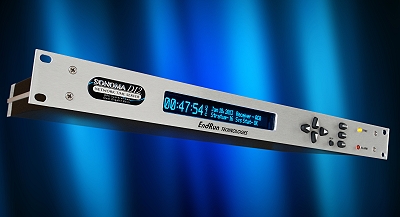Network Time Synchronization
Most people assume that computer clocks in servers, workstations and network devices are inherently accurate. This is incorrect. Most of these clocks are set by hand to within a minute or two of actual time and are rarely checked after that. Many of these clocks are maintained by a battery-backed device that may drift as much as a second per day. Having any sort of accurate time synchronization is impossible if these clocks are allowed to run on their own.
The Importance of Time Synchronization for Your Network
In modern computer networks, time synchronization is critical because every aspect of managing, securing, planning, and debugging a network involves determining when events happen. Time also provides the only frame of reference between all devices on the network. Without synchronized time, accurately correlating log files between these devices is difficult, even impossible. Also:
- Tracking security breaches, network usage, or problems affecting a large number of components can be nearly impossible if timestamps in logs are inaccurate. Time is often the critical factor that allows an event on one network node to be mapped to a corresponding event on another.
- To reduce confusion in shared filesystems, it is important for the modification times to be consistent, regardless of what machine the filesystems are on.
- Billing services and similar applications must know the time accurately.
- Some financial services require highly accurate timekeeping by law.
- Sarbanes-Oxley and HIPAA Security Rules both require accurate timestamping.
One Way to Synchronize Your Network Time
The Network Time Protocol (NTP) has long been the leader in time-setting software. Some companies solve the problem of synchronizing their networks by using NTP to go out on the Internet to get time from a public Internet Time Server. But, this approach is a security concern because there must be a "hole" left open in the firewall (UDP port 123) to allow packets containing the time information through.

A Better Way to Synchronize Your Network Time
A dedicated network time server behind your firewall protects you from the security risks inherent in obtaining Internet time. Also, a network time server on your LAN can reliably keep all the servers, workstations and network devices synchronized to within 1/2 to 2 milliseconds of each other (typical). This is much better than the many tens of milliseconds sync accuracy you would typically get from an Internet Time Server.
At EndRun Technologies we specialize in the manufacturing of very high-quality Time Servers. If you are an IT Administrator interested in time synchronization and in maintaining a high level of security on your network then click here for more information.

